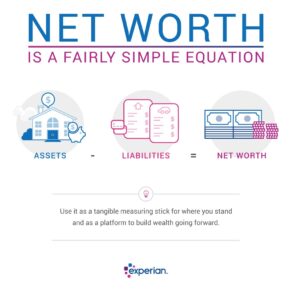
In the dynamic realm of education, keeping pace with the latest trends is essential for educators, administrators, and learners. The educational landscape undergoes constant evolution, influenced by technological strides, shifting societal demands, and inventive teaching approaches. In this article on Education Trends, we’ll explore the cutting edge of educational transformation. By uncovering the latest trends, we aim to illuminate the path to tomorrow’s learning. Stay informed with the transformative insights at Education Trends.
Personalized Learning Environments
One of the prominent trends shaping education is the move towards personalized learning environments. Traditional, one-size-fits-all approaches are giving way to adaptive learning platforms that tailor educational experiences to individual student needs.
Leveraging artificial intelligence and machine learning, these systems analyze student performance data to provide custom-tailored lessons, ultimately enhancing the learning experience.
Virtual and Augmented Reality Integration
As technology continues to advance, the integration of virtual and augmented reality in education is becoming increasingly prevalent. Imagine students exploring ancient civilizations in history class or dissecting a virtual frog in biology.
These immersive experiences not only captivate learners but also deepen their understanding of complex subjects, making education more engaging and memorable.
Rise of Microlearning Modules
With attention spans decreasing in the digital age, microlearning has gained traction. Short, focused lessons or modules allow learners to absorb information in bite-sized chunks, promoting better retention and understanding.
This trend is particularly beneficial for on-the-go learners who can access educational content conveniently through various digital platforms.
Emphasis on Social-Emotional Learning (SEL)
Recognizing the importance of holistic development, education trends are increasingly focusing on social-emotional learning (SEL). Schools are incorporating programs that nurture emotional intelligence, resilience, and interpersonal skills, preparing students not only academically but also for the challenges of the real world.
Integration of Artificial Intelligence in Education
Artificial Intelligence (AI) is making significant inroads into education, offering personalized learning experiences, intelligent tutoring systems, and even grading assistance. AI algorithms analyze student data to identify learning gaps, enabling educators to provide targeted support where it’s needed most.
Competency-Based Education
The traditional grading system is evolving into competency-based education, which emphasizes mastery of skills rather than simply completing coursework. Students progress at their own pace, advancing when they have demonstrated proficiency, fostering a deeper understanding of the material.
Gamification in Learning
Gamification is revolutionizing education by incorporating game elements into the learning process. Educational games and interactive simulations make learning enjoyable while promoting collaboration, critical thinking, and problem-solving skills. This trend is particularly effective in engaging younger students.
Blended Learning Models
Blended learning, a mix of traditional classroom instruction and online learning, continues to gain popularity. This approach allows for flexibility, catering to diverse learning styles, and provides opportunities for both independent and collaborative learning.
Continuous Professional Development for Educators
Recognizing the importance of keeping educators abreast of the latest teaching methodologies, there is a growing emphasis on continuous professional development. Teachers are encouraged to engage in ongoing training to enhance their skills and stay informed about the latest educational trends and technologies.
Global Collaboration and Connectivity
In an increasingly interconnected world, education is transcending geographical boundaries. Virtual classrooms and online collaborative projects enable students to connect with peers from different cultures, fostering global awareness and collaboration.
Conclusion
The future of education is dynamic and ever-evolving. By embracing these latest trends, educators can unlock tomorrow’s potential, creating learning environments that are adaptive, engaging, and effective.
Whether it’s personalized learning experiences, the integration of emerging technologies, or a focus on holistic development, these trends are shaping the landscape of education and preparing learners for the challenges and opportunities that lie ahead. Stay tuned, as the educational journey continues to unfold, unlocking new possibilities for the learners of tomorrow.







